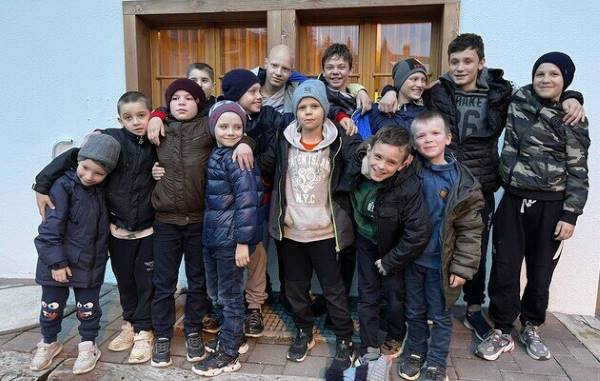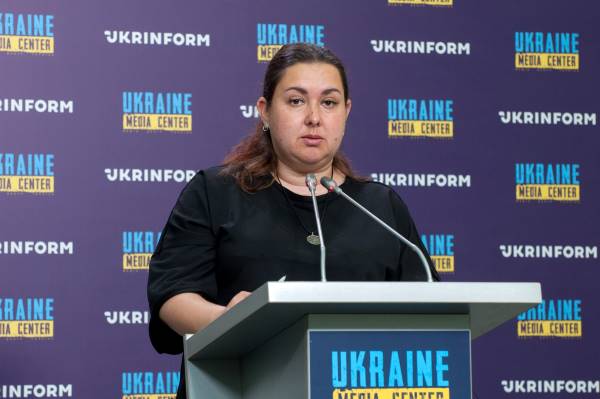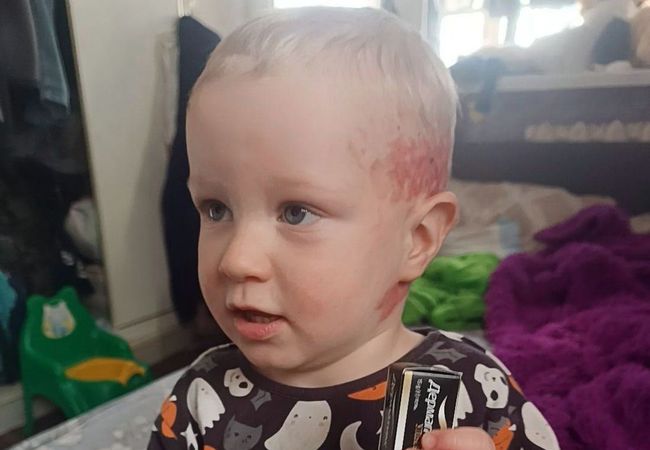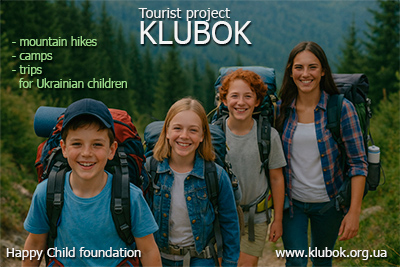
Recently, the Public Union "Ukrainian Network for the Rights of the Child" announced the launch of the information campaign "A child needs a family." The full-scale war launched by Russia against Ukraine has once again emphasized and sharpened the problems in the field of protecting the rights of the child. First of all - children deprived of parental care.
According to Lyudmila Denisova, Commissioner of the Verkhovna Rada for Human Rights, during more than two months of a full-scale war, the occupiers took over two thousand Ukrainian orphans and children deprived of parental care to Russia.
Why did it happen? After all, it is well known that children who remain in dangerous places often become hostages and a pretext for manipulation by the occupiers. This was already the case in 2014. Has the state drawn conclusions? How does the government view child protection issues? And how does he plan to solve them during and after the war? When will it be possible to adopt a child again? About this ZN.UA asked Darya Herasymchuk, an adviser on the Commissioner for Children's Rights and Children's Rehabilitation. Draw your own conclusions.

— Mrs. Daria, what surprised you the most, perhaps hurt or annoyed you in building a child protection system in the conditions of a full-scale war?
- The system of protection of children's rights is definitely not ideal. It takes quite a long time to build. Various people and ministries are involved in this. Frames change in the latter. People have different vision of the system that should be.
The current system needs to be changed. It would be very good to form a separate ministry that would deal specifically with family affairs. It would be nice to have family courts like in the EU countries. This would make it possible to resolve children's issues faster - out of turn and in a qualified manner. Of course, we understand that there is a need for reform in the services for children. It is necessary to build the right vertical, teach people, provide them with good jobs, so that they have the opportunity to devote themselves to their work in a qualified and full way.
Two weeks ago, I returned from a monitoring trip within the framework of the Coordinating Headquarters for the Protection of Children's Rights in Wartime, which I co-chair with the Minister of Social Policy Marina Lazebna. With the financial support of UNICEF, we traveled to the countries that received and continue to accept our children the most - to Poland, Germany and Italy. We watched how our children were placed, were interested in how they got there, who evacuated, what provided. First of all, we are talking about organized groups. We also met with the government structures of these countries.
The biggest problem is that the legislation of Ukraine in certain matters does not coincide with the legislation of the EU countries. For example, in Ukraine, a child between the ages of 16 and 18 can travel freely and does not need an accompanying person. In EU countries, a child under the age of 18 requires an accompaniment. A child between the ages of 16 and 18 who left Ukraine without problems is considered an unaccompanied child in other countries, and a temporary guardian is assigned to him. And this is a problem, because the citizens of Ukraine do not understand who a temporary guardian is and what powers he has in relation to children.
There is also a problem with family forms of education. There are many of them in Ukraine - a foster family, a family of guardians, trustees, a family-type orphanage (FTO). In the EU countries, there is only one form - the foster family. It is difficult for the governments of these countries to understand our diversity. In Italy, for example, they do not understand what FTO is, who are the parents-educators and what powers they have. Therefore, there, again, they appoint their temporary guardian. This creates a certain difficulty, because there is already a formed family, father and mother are educators. They are very worried and do not know how to treat the appointed guardian.
These problems are not so much surprising as confirming that we are moving in the right direction and modernizing our system. This also applies to the deinstitutionalization reform. It is in this direction that we must move.
— Perhaps there are some specific stories that you have come across as a result of monitoring?
We are faced with different situations. A family traveling abroad must understand where and with whom they are going. Unfortunately, there are cases when volunteers and organizations of various directions offered help to people, promised that they would bring them to a good place, provide accompaniment, translation. In fact, they brought, settled, and then left without escort and translation. At the same time, the language barrier creates many different problems. It is hard for people to understand how to arrange social payments, establish support, how to arrange a child for school, and so on. That is, people in a hurry agree, without having calculated all the options for the development of events, and then they often remain silent about it. This is first.
And secondly, parents-educators or guardians know that if they cross the border, they are obliged to put all children on consular registration within one day. Ukraine must clearly understand where the child is and where to pick him up from. But in some cases, organizations that brought people with children abroad assured them that there was no need to register with the consular office, because it was a lot of problems. And then the family is persuaded to move to another country. For example, from Germany to America. Parents-educators are very worried and do not understand what to do next, because they received approval from the authorized body in Ukraine to move to this country, and not to another. Such problematic situations arise when people do not fully know their rights and obligations and are “led” to the not very fair games of various organizations and volunteers who took them out.
But the initiative group, consisting of representatives of various ministries, people's deputies of the Verkhovna Rada involved in children's issues, and experts, has been working since the first day of the war. Until March 17 - on an unofficial basis. Then the government officially created the Coordinating Headquarters for the Protection of Children's Rights in Wartime, which includes 11 ministries, people's deputies of the Verkhovna Rada, various departments and representatives of the public sector, international organizations, and experts. At meetings of the headquarters, we receive a lot of precise information about situations in different countries. Analyzing it, we inform the citizens of Ukraine how they should act, what documents to prepare and what to check when entering another country, with whom to keep in touch. Consular registration is a must.
— This is for those who have gone abroad. What problems did families face when moving to other regions? What happened to boarding schools? I know that, unfortunately, not all of them were evacuated. Why?
- We analyzed data on 702 institutions of various subordination (Ministry of Health, Ministry of Education and Science, Ministry of Social Policy, non-state form of ownership), in which children stayed around the clock. According to the latest information provided a week ago at a meeting of the Coordination Headquarters, 264 of these establishments carried out partial or complete evacuation. Within Ukraine, 83 institutions were evacuated: 42 from the Ministry of Education and Science, 13 from the Ministry of Health, 26 from the Ministry of Social Policy, and two from non-state ownership. Abroad - 181 establishments: 97 - MES, eight - the Ministry of Health, 63 - the Ministry of Social Policy and 13 - non-state ownership.
In total, more than six thousand children were evacuated from round-the-clock establishments. A little more than two thousand of them are in Ukraine. These numbers are increasing daily. That is, many establishments were evacuated.
Monitoring of establishments moved to other regions of Ukraine is carried out by the ministries under which they are located. According to the latest data, the needs of all establishments are practically met. Sometimes there is a need for some seasonal clothing. But almost instantly it closes the charitable sector.
There are certain problems with providing children with gadgets. The Ministry of Education monitors all institutions in Ukraine about the possibility of connecting children to distance education.
All children displaced in Ukraine in a safe place as far as possible.
Unfortunately, there is a certain list of institutions (for security reasons, I cannot name them), for which the government of Ukraine is now trying to organize humanitarian corridors in order to take out children, among whom there are children with complex complex diseases. These are institutions that are located in the temporarily occupied territories. There is a connection with the management of institutions. There is an understanding that there is no humanitarian catastrophe yet, but the children are definitely in great danger, and they need to be taken out. Unfortunately, there is no agreement yet on humanitarian corridors.
— I understand that war and everything cannot be foreseen. But how did it happen that these institutions found themselves in such a situation? Why weren't they taken earlier?
— There is no single reason why this happened. Partly because some foster parents and FTO did not want to leave. Someone was afraid to leave the house, someone's relatives needed special care. Someone was in no hurry, hoping that the trouble would bypass, because it was quiet. But sometimes the situation changes instantly.
Somewhere, perhaps, our oversight. Somewhere, the military-civilian administrations, which are responsible for the evacuation and decide on the relocation of the institution, were sure that everything was going well and the institution was safe. Somewhere the employees of these institutions were not ready to accompany the children. Every case is different and completely individual.
— I heard that the legal representatives of the children were not always ready to leave. But these are the children of the state. Are there (should be) instruments of influence in such cases?
— Certainly. Services for children's affairs also worked with them. I'm not saying that such cases are massive. And that the educators deliberately sabotaged the evacuation. This is definitely not true.
But, for example, it is believed that the family form of education is still a family. There were isolated cases when parents-educators for some reason could not go, and then the children were evacuated along with some institutions or organized groups. At the same time, moving in itself (either in Ukraine or abroad) is a great psychological trauma for a child. This is not a holiday trip, and it lasts quite a long time.
— This is clear. But cases where children remain in dangerous places are often a pretext for manipulation by the enemy.
— Yes unfortunately.
— At the beginning of the war, boarding schools of the Ministry of Education again sent children home. Yes, as it was at the beginning of quarantine two years ago.
— If children have parents who are not deprived of parental rights, then such children are parental. For example, the child studied in a special school. During martial law, he must be with his family. Another thing is that there have been cases when a child was in the process of depriving his parents of parental rights. For example, about their inadequate participation in the upbringing of the child. There are children who were in institutional care because the family had difficult life circumstances.
Children who could return to their families were returned. But there is a group in the Ministry of Education and Science that monitors the condition of these children. We were really taught by quarantine, when all the children were sent to their parents and there were certain problems. At the Coordination Headquarters, we also keep this issue under control - where are the children, in what condition. If there are any problematic points, they are solved. During the war, this issue was raised repeatedly.
— Every day, figures are being voiced about how many children have died or been injured. We understand that official figures are far from real, and there are objective reasons for this. Apparently, it is even more difficult to estimate how many children lost their families during this time for one reason or another. And yet, are there any approximate figures?
— There are no figures yet on how many children were orphaned (that is, they lost both their father and mother). And there are indeed objective reasons for this. A child is not considered an orphan until such status is granted to him by the court. This must be preceded by work in accordance with the procedure.
Since the beginning of the war, there have been many different messages on social networks that, they say, some child was orphaned and should be adopted immediately. But even if a child has lost one of the parents and never lived with the other, he may not be a complete orphan. This is first. Secondly, people often forget: even if both the father and the mother have died, the child may have other close relatives - grandfather, grandmother, aunt, uncle, with whom the child was in close contact. And the fact of the loss of parents does not mean that the child needs a new family. Usually they are looking for relatives, and the child is placed under guardianship in a circle of acquaintances and people close to him. Therefore, to say that there are many children who need to look for a new family, I think, is premature.
— What are the current procedures for placing children in a family? Is adoption possible??
— Adoption in Ukraine has not been stopped or suspended for the duration of martial law by any regulatory legal acts. But this is a certain procedure, and it must be carried out in its entirety. There is something to improve, but nothing to simplify. You cannot transfer a child from one dangerous situation to another. Adoption is forever, and to say that all the children that we have in institutional care institutions should simply be distributed to families, sometimes without even understanding which ones, is definitely wrong.
Therefore, from the beginning of the war, the adoption procedure was unofficially suspended, because it could not go completely and correctly through the entire legal chain. But during martial law, they simplified the procedure for registering guardianship only for relatives and a close circle of relatives.
In addition, temporary placement of a child in a family is now practiced. This is not a new form, but it is now being referred to more frequently. From the wording it is already clear that the child is placed in a family for a certain time. With this form, the state does not pay any funds to the family. This is a temporary shelter for a child, voluntarily provided by the family.
On my initiative, from the first days of the war, the office of the president, together with the Ministry of Social Policy, with the support of UNICEF, created a chat bot in Telegram for the convenience of citizens, which is called "Child is not herself." All interested citizens of Ukraine, who are in the country, could apply for a temporary placement of a child who needs it in their family.
During the war, more than 18,000 Ukrainian citizens submitted applications to the chatbot. They were sent in-depth information about this form of device. For example, that it will not be possible to travel abroad with a child, and so on. If after that people confirmed their desire, they were offered to provide more detailed information and fill out a questionnaire, which was then processed by the services for children. They were also offered to undergo online training on communication with the child and possible psychological problems, and so on.
After that, if there was a child in need of temporary accommodation, the Children's Service (throughout Ukraine) contacted such a family and handed over the child to them. So it was arranged in the families of more than two thousand children. Not necessarily orphans or deprived of parental care. Sometimes it is a child whose relatives cannot be found. Or, for example, the child lived with his grandmother, who was hospitalized with pneumonia. There are different cases. We do not want to place found children in institutions of institutional care. We want the children to immediately get into the family, at least temporarily.
To date, all our structures have already come to their senses. Recently, at a meeting of the Coordination Headquarters, we heard a report from the judicial administration on the work of judges in different regions of Ukraine. Now we are analyzing all the problems related to adoption in order to resume the adoption procedure within the next few weeks. There are moments that need to be coordinated by certain algorithms. Including at the regulatory level. So that everyone knows what to do in this or that case. For example, if the child or candidates for adoptive parents have moved and are now in another region, or the child is abroad, and the like. We are at the stage of searching for the last answers to the questions that need to be settled. Not easy, but necessary. And I hope that in the near future the adoption procedure will be resumed.
— What about the training that adoptive parents must go through??
—Training is essential and will continue. Whoever you are, you should be aware of the specifics of dealing with a child who used to live in an institutional care setting, or with a child who has just been severely traumatized. We are preparing changes to digitalize the procedure a bit. For example, so that you can submit documents online, receive an invitation to study. But face-to-face training and interviews will remain mandatory.
— You spoke about the need for a separate ministry for children. And what about the State Service for Children, the creation of which was approved by the Cabinet of Ministers on the eve of a full-scale war?
— She continues her journey of creation. The State Service for Children will definitely be there. In fact, it is a body that can manage, in particular, adoption issues. As for the ministry, my own thoughts. I believe that this would be most effective in protecting the rights of the child.
— Boarding schools during the war mostly demonstrated their inefficiency. What are you planning to do with them after the war?
—I spoke even before the war and I do not renounce my words now: we have done and will do everything to ensure that every child has a family. This is the position of the President of Ukraine Volodymyr Zelensky. Even the best institution of institutional care, where the child lives around the clock, definitely does not give what a family can give. We must look for an alternative, family forms of education are the best substitute. It's just that the point here is that you can't relate everyone with the same brush and compare special schools, in which the child receives educational services, if necessary, with orphanages or other institutions of institutional care.
I believe that children should not live in institutions and that every child should have a family. I am sure that the desire of the President of Ukraine has definitely not changed, and after the war we will continue to do everything to ensure that children are brought up in families, and the system for protecting the rights of the child is improved.



